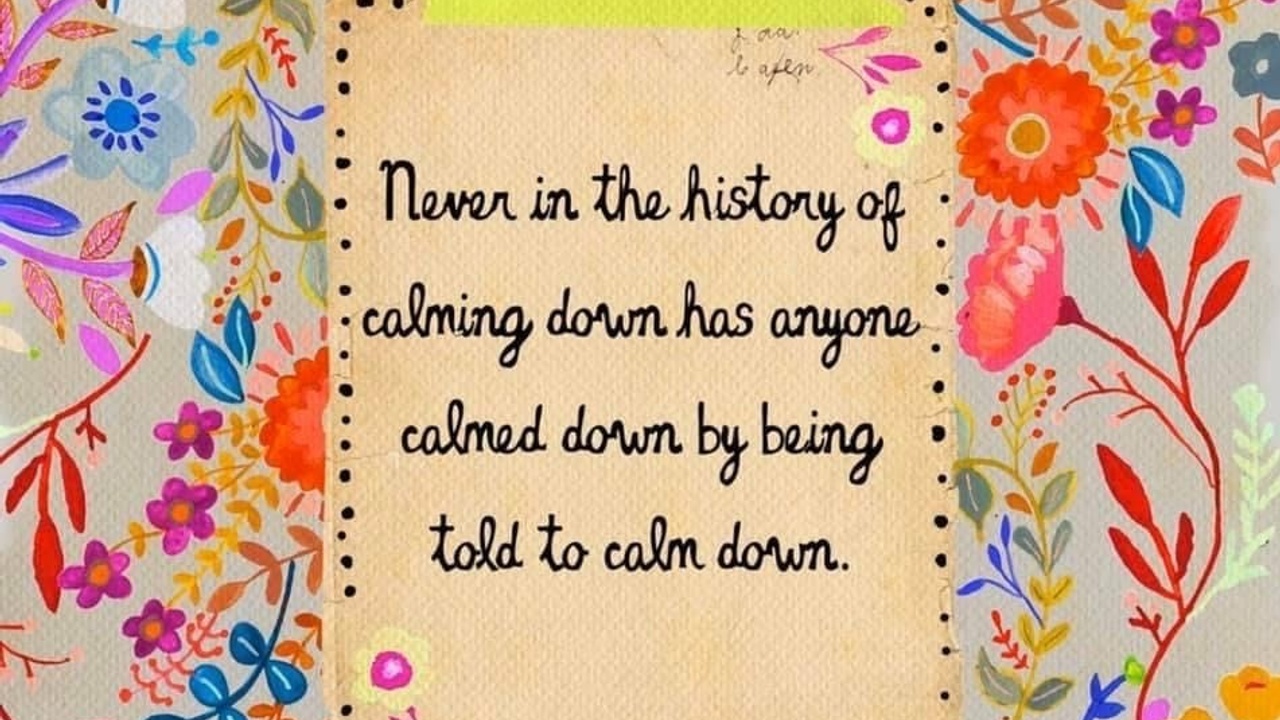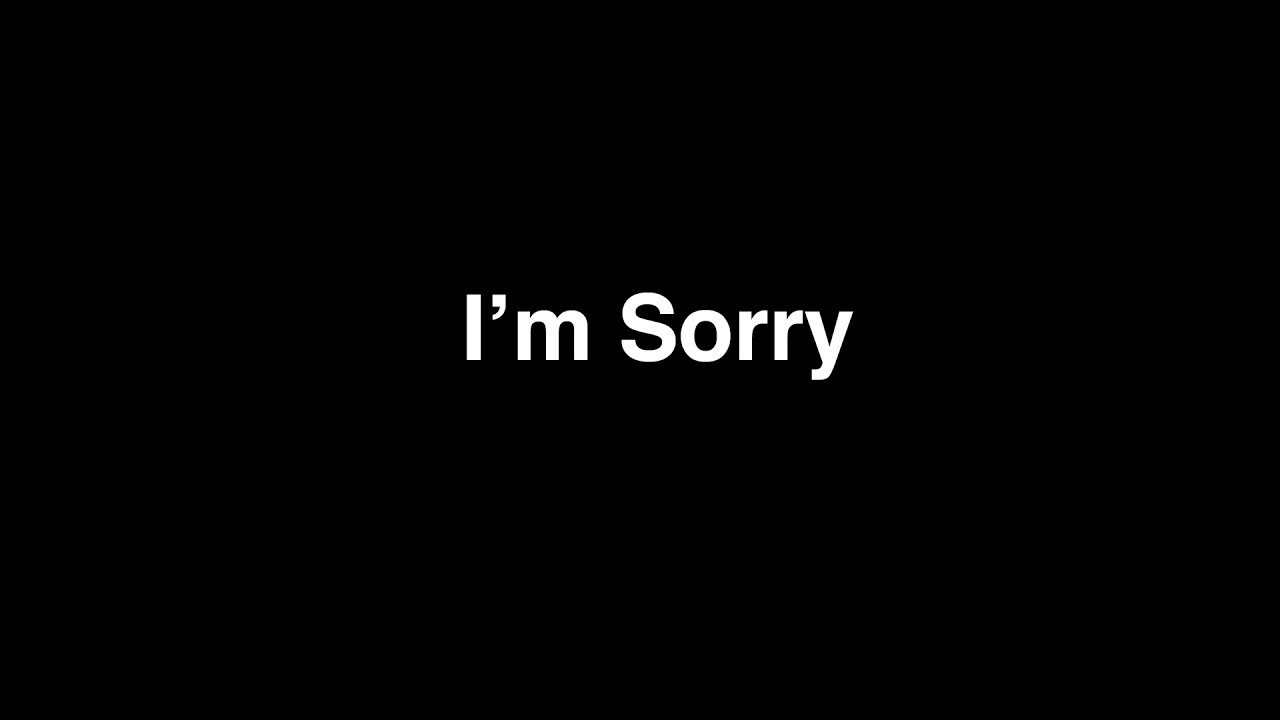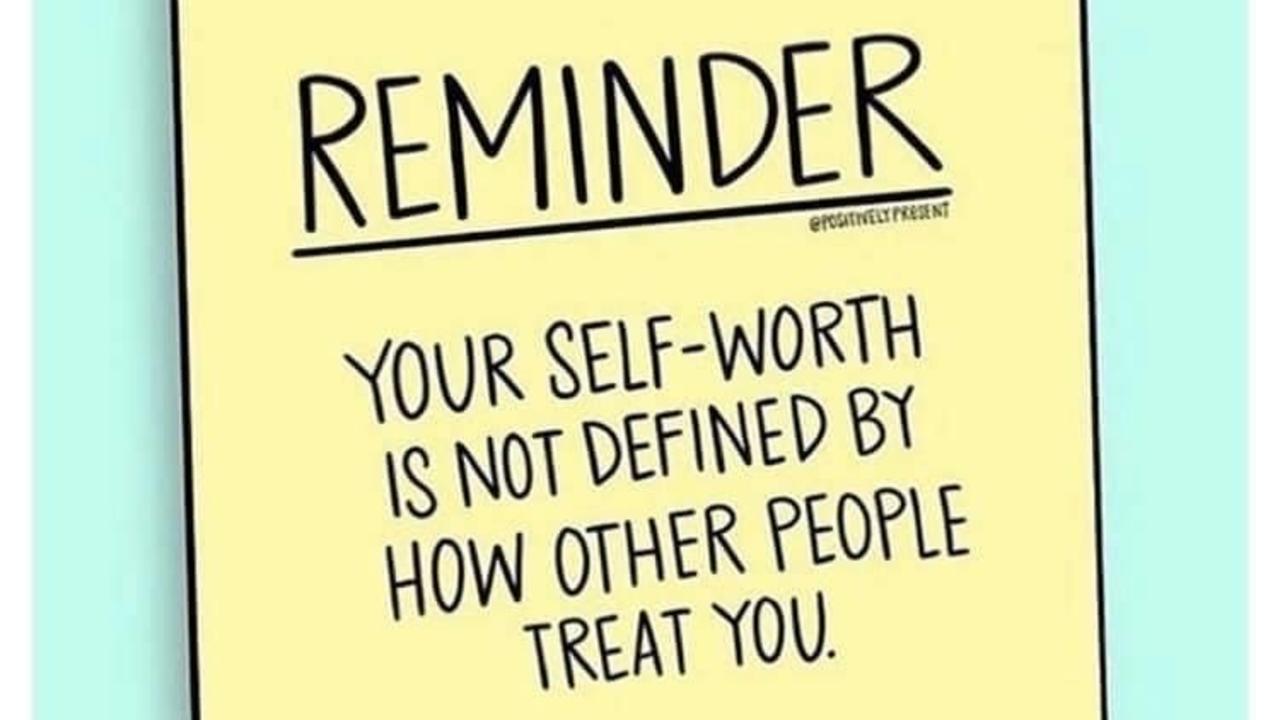Just Calm Down

Telling someone who is visibly upset to "Just calm down" is like saying, “Just stop overeating” to someone who wants to lose weight. Intellectually, you know what you need to do yet your self-management skills aren’t keen enough to cease the behavior or the unresolved feeling. And quick fix advice such as “be positive” makes you feel worse because it denies the inadequacy you feel inside.
I used to be more of what could have been labeled a ‘distant’ leader. Calming down was not my issue. Relatability was.
Three things changed that for me and for my clients struggling with how to manage emotions:
1) Allow them.
2) Be curious about them.
3) Be compassionate to yourself and others.
This wasn’t a quick fix. It was a repeated practice of continually taking myself through this exercise of self discovery which lead to self acceptance.
I was a single mother and only provider of four children who was stuck in survival mode. I neglected myself as I was taking care of everyone else. I had...
Great Executives Know the Difference Between Goals and Expectations

Corporations calculate success by metrics – return on investment, productivity, key performance indicators, cost savings, balance sheet, cash flow, retention, number of goods sold, quality metrics, speed to market, profit margin. Goals are created in the aggregate of these measurements. Performance at work is tied to goals. Goals are always measurable. If it isn’t measurable, it is only a notion, not a goal.
When a corporation doesn’t place the same value on its people as it does on its metrics often employees get sucked into believing that their personal worth is tied to the goal. And if they fail to meet the goal, they are a personal failure. There could be many circumstances that affect the realization of goals – resources, team culture, time, talent, a crisis, market share, competition. Yet individuals often lay expectations on top of goals, leading to despair. I am expected to hit the goal, or I won’t fit in here. If I don’t meet the goal I won’t advance. I might get te...
Your Emotions at Work

We were taught for a long time that showing emotion was weak. “Just suck it up, Marine” was the mantra. Today we finally realize that denying emotion denies the feeling behind the emotion. And when we do that it eventually bubbles up later in an outburst, passive aggressive behavior, withdrawal, lack of compassion, poor communications, emotional immaturity and even post- traumatic stress.
Though we don’t want to be an emotional leader, exhibiting extreme emotions that are inappropriate at work, cause negative attention to ourselves and halt progress. That strips your executive presence. But we are human, and humanity is honest. Being honest with your team, about what you struggle with builds trust. "Honestly, I struggle with this and value your insight."
Sometimes emotion takes over our good judgment. Then we need to decipher the internal roadblock before it derails us. It takes far more courage to admit the feeling than to stuff it down.
Unravel the feeling from the fear. Take a...
I'm Sorry

Ladies! Please stop saying, "I'm sorry" so much especially at work. Not "I'm sorry to bother you." Just "Do you have a minute?" Not "Sorry this is probably stupid..." Just "Can I run something by you?" Not "Sorry" when you bump into someone. Just "Pardon me." Men don't do this because their threshold for being sorry is far higher and more realistic. When is the last time you heard a man say, "I'm sorry can I ask a question?" Be direct. Be confident. Be authentic.
You're not sorry that you want to say something. You just want to feel that others want to hear it. Don't expect that they don't. Focus on listening so your comment will be most relevant. Set your ego aside as you focus on what's important. Play with the concept of who you would be without doubt?
The last person to speak has the most to say.
Many people are worried right now about their jobs and not sure if an industry switch or a position change is a good idea. I hear it every day. Often more planning goes into a summer v...
Rejection Can Be Debilitating

Rejection can be debilitating. You won’t worry about how other people feel about you if you have the presence to manage yourself and your thoughts. Build a “family” of people around you that consistently reminds you how awesome you are. That tribe combats the doubt that sits idle in your head ready to undercut your self worth at any moment of rejection because you hadn’t heard often enough of your magnificence.
Two Flawed Assumptions that Hold You Back

At work we often measure our self-esteem by what our boss or colleagues think of us. This is based on two flawed assumptions.
1.) You think you know what they think but you don’t. How they perceive you is through their own lens not yours. That lens may hold bias. You will never know how they truly feel. Even if you ask them they will filter their response through their interpretation of their feelings. Your job is not to change their mind. Your job is to be effective.
2.) You think your value is measured by their behavior toward you. Of course we all want to be liked and appreciated. Good leaders know how to reinforce their teams with positive feedback and coaching moments. But your value is measured by your effectiveness not your efforts so focus on whether or not you are effective and allow that to be your gauge.
The operative phrase here is “be effective.” If you focus on that your self worth will grow. You’ll build trust and favor by playing toward your signature strengths - ...
This Matters for You Executive Presence

I really like the line, “Are you operating as an emotion scientist or a judge.” Emotion scientists observe their and other people’s emotions from a third party perspective and get curious about what’s behind them. Judges judge to get away from the discomfort of feeling uncomfortable.
Scientists process and name the emotion to release it. Judges turn and run from it with it nipping at their heels forever. Scientists have executive presence. Judges get stereotyped as difficult, emotional and ineffective.
There’s always a choice. One is harder and requires looking inward with humility and curiosity. One is easier and demands externalization with blame that results in underlying shame.
Practice being the scientist. It makes life and leadership far easier in the long run.
If you want to create your career by design here is a link to my FREE Career and Life Planning Tool. If you don't know where you'll be at the end of the year you are already there. Don't have an accidental career.
...Three Steps When You're Afraid

This week I had to give a presentation at work not unlike others I’ve given throughout my career, yet I was nervous. Every time I thought about it my heart started to race and I got tense in my neck and shoulders. Public speaking is one of the leading causes for workplace fear. But I speak often so my nervousness didn’t make sense. As an executive coach I know not to turn away from fear but to bring it closer like you would a hurting child. That self-nurturing was hard in this instance. But I kept getting curious about what I was really afraid of.
When I could stand open and vulnerable without judging myself, I realized I had a lot of personal distractions this week that made me feel anxious and irritable. Just the day before I had argued with an online bank customer service representative who refused to cancel a credit card they had sent to my home for my deceased father. I kept trying to convince him that this was the bank’s problem and should not be my problem. Typically, I would ...
When You Personalize Your Employees' Behavior

When I was a new manager I used to personalize why members of my team weren’t engaged. I made it about me. I was the reason they were under-performing.
I did everything in my power to re-engage them and when it didn’t work I then started to resent them for being disengaged. What I didn’t do was hold them firmly accountable to clear goals for fear of push-back and confrontation. I didn’t do my job as a manager and they became entitled.
When I set clear goals and began meeting with them regularly on their performance on those goals we began a dialogue around the challenges they were having and could role play alternative scenarios. The feedback depersonalized for me when I made it about their performance on the goals and not their attitude versus my expectations. Very objective. Them against the goal, policy, company value - not me.
Wishing you the power of regular feedback on clearly defined goals today.
Listen to a recent interview by Leadership Podcaster Frank Aziz. In this p...
What to do with Entitled Employees

I’ve never understood why overbearing people think they have power. It’s obvious they don’t. Nobody trusts them or authentically has their back. They are always exhausted trying to make themselves look good at other’s expense. Their insecurities reek in their behavior. And their leadership has no sustainable affect because the people they play to are the first ones off the ship when it starts to go down.
If you can’t achieve your goals without manipulating, controlling, condescending to, backstabbing, and intimidating other people along the way you’re weak and you will ultimately fail. Period. I’ve seen it in corporate America time and time again. It may not be right away. But it will happen. And your legacy will precede you everywhere you go after that.
The real problem with mean people is that they are intrinsically unhappy, insecure and have minimal self-awareness. The root feeling behind their behavior is anger coupled with an uncomfortable sadness they don’t want to deal with...
